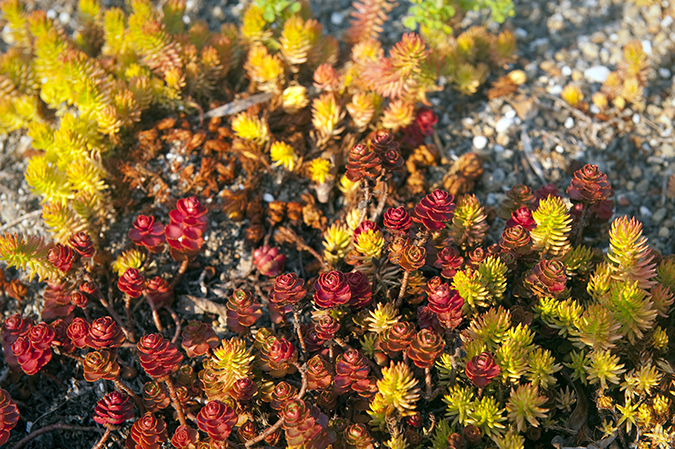How is VCU making sustainability real?

Virginia Commonwealth University is committed to becoming a more sustainable campus. From the facilities where we teach, learn and live, we are committed to passing on a healthy environment to future generations.
Throughout VCU, you can see our commitment to sustainability and conservation. Go to the terrace of Pollak Building, and you will find greenspace that includes plants native to Virginia. Planted by students from the Department of Interior Design in 2011, this garden provides a scenic collaborative learning space. While you are there, take in the amazing view; you may even spot some solar panels on the surrounding buildings.
Our solar panels, installed on parking decks, university housing and other buildings, save VCU resources and reduces greenhouse gas by several hundred metric ton of carbon dioxide equivalent (MTCDE). The solar water heater at Shafer Court Dining Center also saves a significant amount in kilowatt hours and MTCDE each year. We also use rainwater collected in cisterns to water plants and gardens across the university.
Starting this fall, students living in the Ecovillage in Rhoads Hall will be able to live sustainably and put what they learn into practice. Students can also earn a certificate in sustainability.
Stop by 1218 Parkwood and visit the Office of Sustainability’s Monroe Park Campus Learning Garden, which I had the pleasure of visiting earlier this spring, or the MCV Learning Garden near the Larrick Center. See what is growing, or consider volunteering to help tend these gardens—one of the many ways you can contribute to the community around you. Produce harvested from these gardens goes to RamPantry and the Richmond High Blood Pressure Center, and students from the School of Allied Health Professions create healthy recipes for the community.
Cary Street Gym — originally built in 1890 as Richmond’s city market and auditorium—has undergone many changes over the century. During its most recent renovation, almost 90 percent of waste was diverted from the landfill and a portion of building materials were sourced from the region. Today, water usage is kept at a minimum with a state-of-art plumbing system and through other initiatives.
The Walter L. Rice Education Building at VCU Rice Rivers Center, a VCU Life Sciences field station located in Charles City County, was the first LEED Platinum building constructed in the Commonwealth of Virginia. This is fitting, given the Center’s dedication to environmental research and education for the VCU community, our neighbors and beyond.
Our commitment to a better world includes our academic, research and health care missions. It also certainly includes our efforts to be good neighbors and good stewards of our natural resources. That we have achieved so much in this area is because of you, and I thank you for the ways you make a more-sustainable VCU a reality.
Categories 21st-Century University, Community, Health